The use of radiation therapy is widespread in the treatment of cancer, so much so that over half of US cancer patients are treated with some form of radiation therapy. Radiation therapy is also often combined with other forms of treatment, such as surgery or chemotherapy. At Comprehensive Interventional Care Centers, our expertise in interventional radiology (IR) procedures often allows us to provide an alternative to external-beam radiation therapy and systemic radiation therapy by injecting the radioactive therapy materials directly into the heart of the tumor, thus reducing potentially negative side effects.
However, even at a top liver radiation therapy center in Phoenix there is a possibility of some negative side effects. Therefore, to help people who may find themselves in the role of caregivers for family members or friends who are undergoing radiation therapy for their cancers, in this article we’ll discuss ways you can help.
What are some of the common side effects of radiation therapy, and how can I help?
First, it is important for both patient and caregivers to understand that radiation therapy is usually targeted at one specific part of the body, so side effects may vary widely depending on the area being treated. For example, movies and TV shows often portray all cancer patients as if losing their hair was inevitable, but in reality that may not be true. What IS true is that many people undergoing radiation therapy experience fatigue, skin problems, and dietary problems.
- How to help with fatigue. If you are a caregiver for someone whose radiation therapy is causing them to feel fatigue, understand that it’s not just physical fatigue they are experiencing. They are also likely to feel mentally and emotionally tired, and as a result may find it difficult to “think as clearly” as they are used to, or may find themselves prone to depression and emotional mood swings that they cannot control. What you can do is help them to balance their need for rest (which can be greater than usual) with the need for some kind of healthy exercise to combat their fatigue. You should talk with their doctor to find out what types of exercise are OK, and then help them to perform them. You can help, even if it’s just accompanying them on a walk.
- How to help with skin problems. If your loved one has developed skin problems, try to help them avoid rubbing, scratching, or using adhesive bandages on the affected areas. Be vigilant to make sure that any laundry detergents you use to wash their clothes aren’t aggravating the problem. And if your loved ones want to enjoy the sun, check with their doctor to see if sunscreen is advised, and then go with the doctor’s recommendation to protect skin which may be more sensitive than usual.
- How to help with dietary issues. If your loved one is undergoing radiation to the stomach, head, or neck area, they may occasionally feel too fatigued or nauseated to eat and drink as usual. In such cases, try to encourage them to eat smaller meals or snacks throughout the day and stay hydrated.
Should I as caregiver be concerned about being affected by radiation?
We mention this because it is often a question that caregivers ask us in our roles as interventional oncology specialists in Phoenix. Patients receiving external radiation therapy are exposed only during treatment, but if they are receiving systemic radiation therapy, you may want to avoid physical contact with the patient’s skin and bodily fluids for a few days after each treatment.
Where do I go if I need to learn more about how to provide care?
There are many online resources provided by groups such as the American Cancer Society (www.cancer.org), but if you live in the Phoenix area, you can also ask the professionals at one of the best cancer treatment centers in Phoenix at Comprehensive Interventional Care Centers at 888-377-7122. We’ll be happy to answer your questions and help you to provide as much comfort and support to your loved ones as possible. At Comprehensive Interventional Care Centers, we believe in 100% patient-oriented care, and that includes working with patients’ families to help get them the loving care they need at home, as well as the loving care we provide them when they are in our offices in one of the best cancer center in Phoenix.
